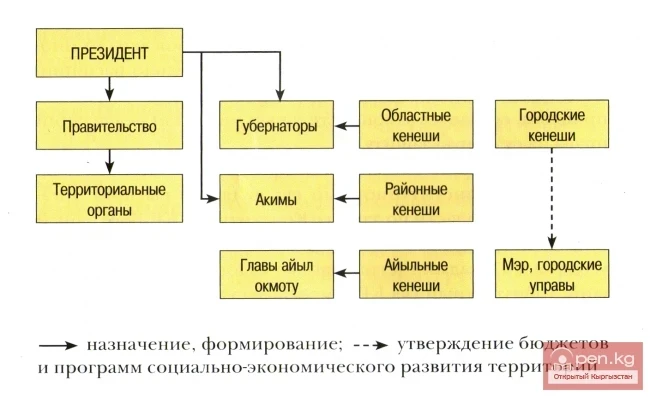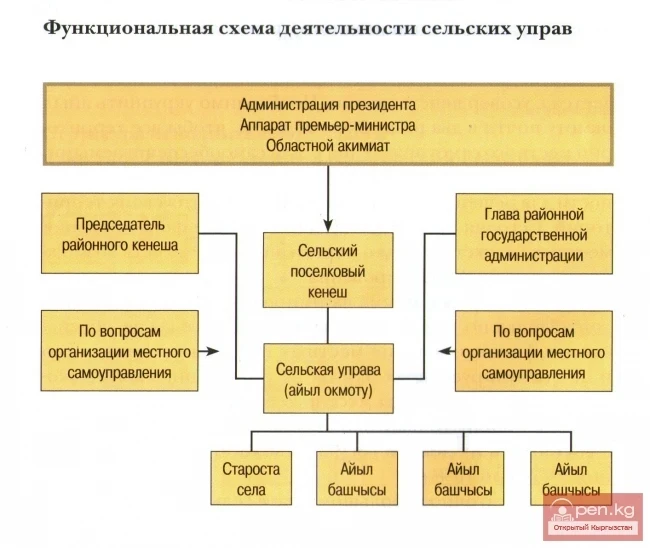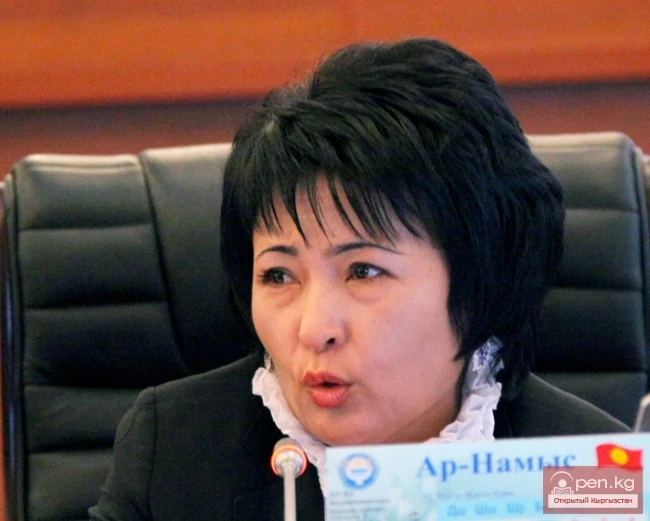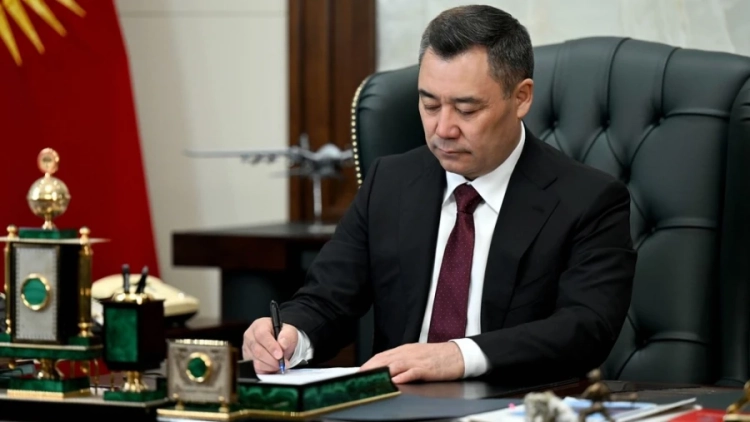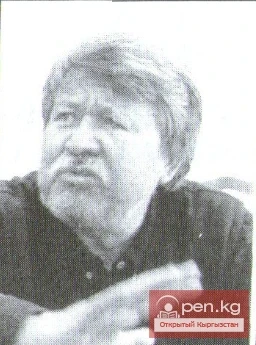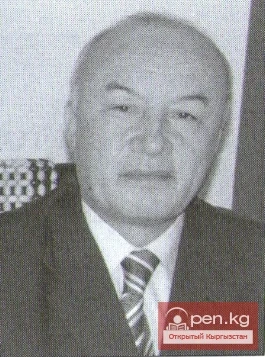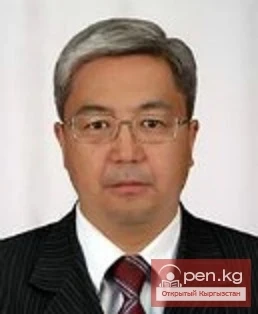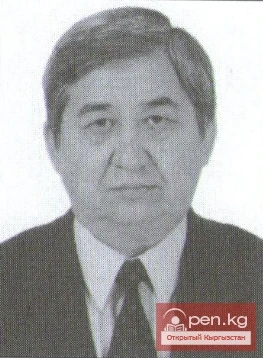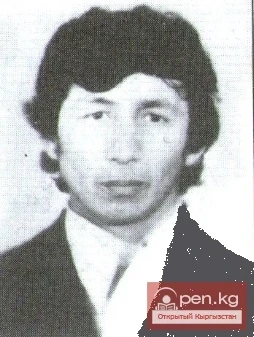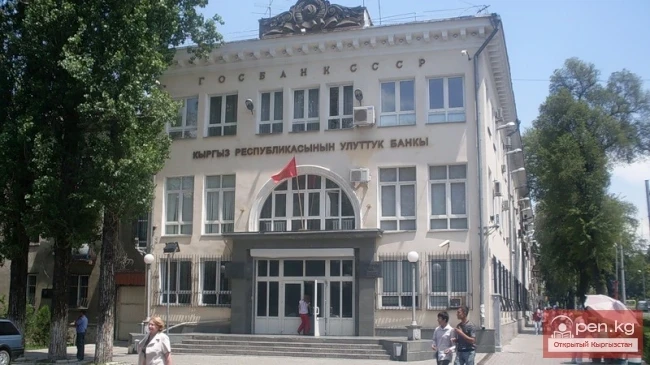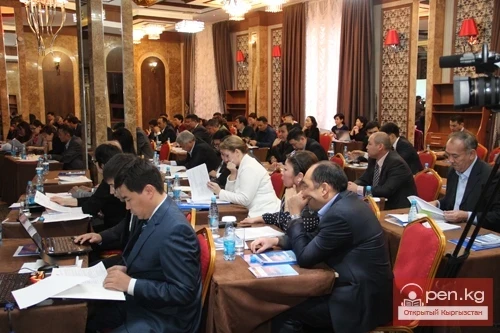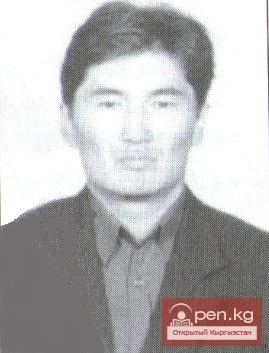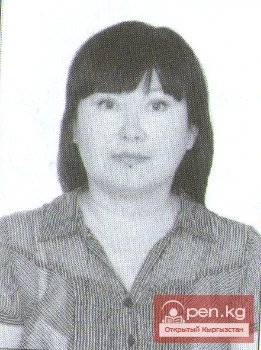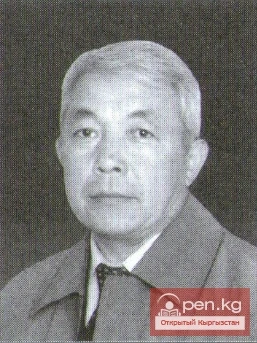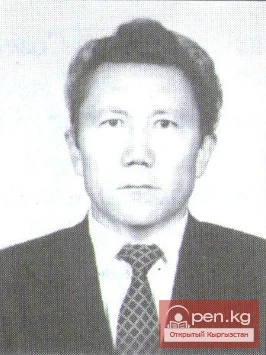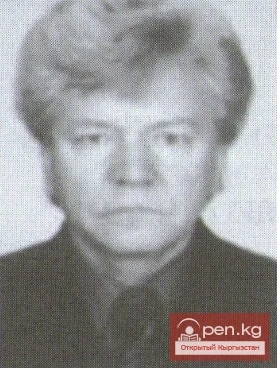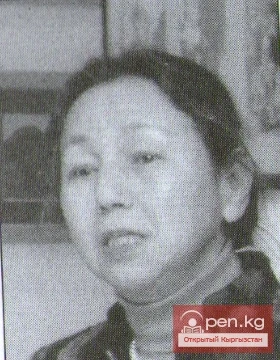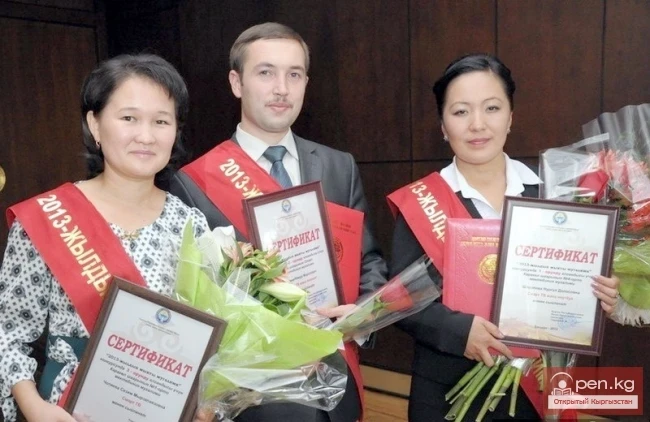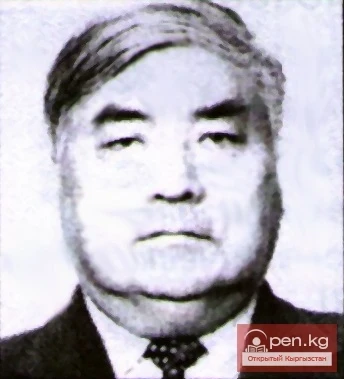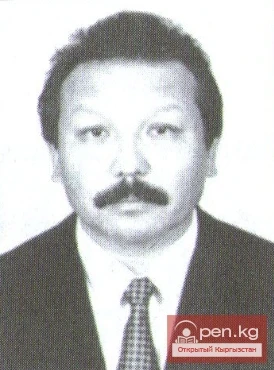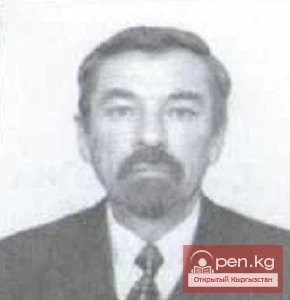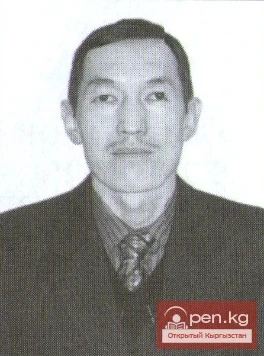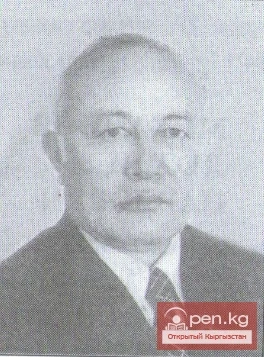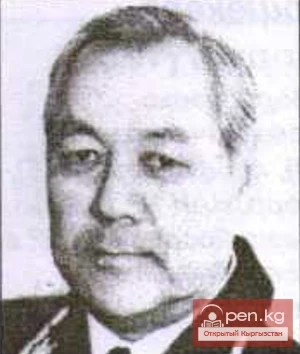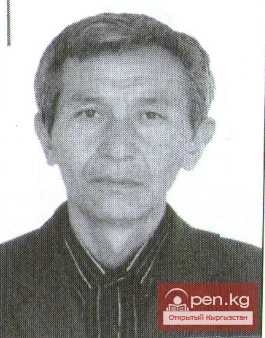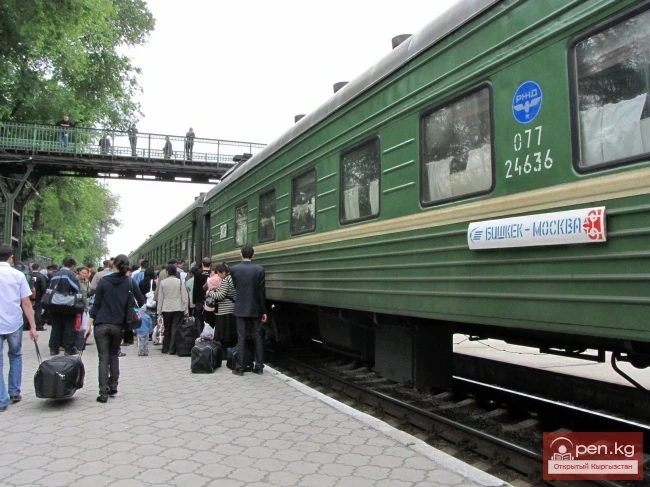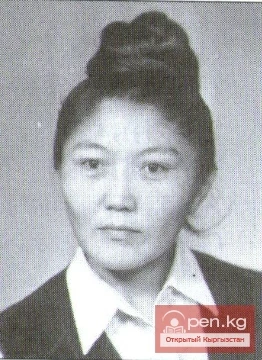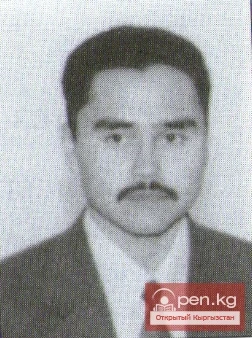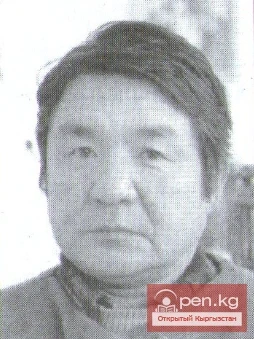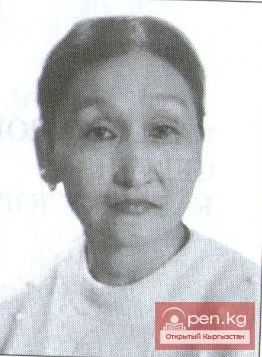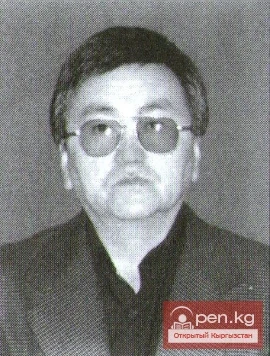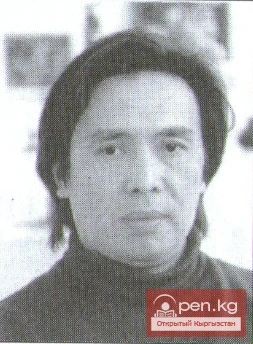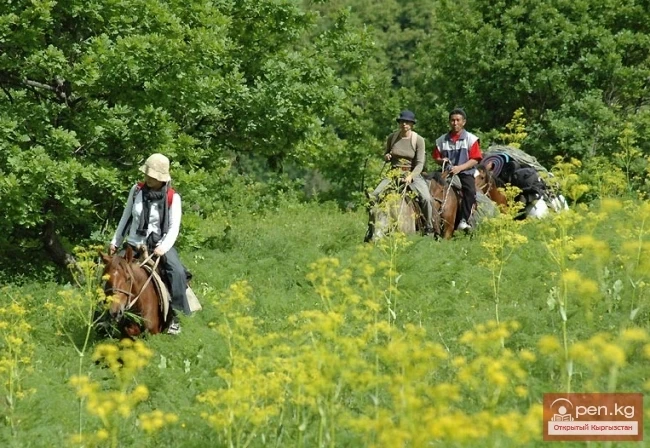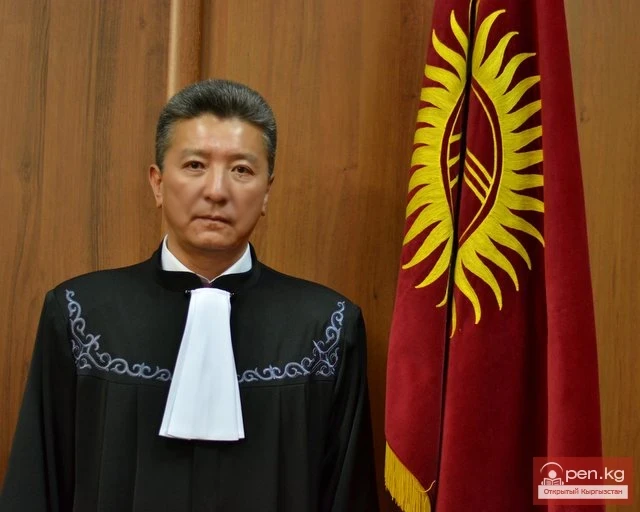
Since 1990, reforms of the judiciary of Kyrgyzstan have been underway. The following laws of the Kyrgyz Republic have been adopted: "On the Court System of the Kyrgyz SSR" (1990), "On the Arbitration Court of the Republic of Kyrgyzstan" (1992), "On the Procedure for Resolving Economic Disputes by the Arbitration Courts of the Republic of Kyrgyzstan" (1992), "On the Constitutional Court of the Kyrgyz Republic" (1993), "On Constitutional Court Proceedings in the Kyrgyz Republic" (1993), "On the System of Arbitration Courts of the Kyrgyz Republic" (1997), "On the Supreme Court of the Kyrgyz Republic and Local Courts of General Jurisdiction" (1999), "Constitutional Law of the Kyrgyz Republic on the Status of Courts of the Kyrgyz Republic" (1999), among others, and six codes in this area have been adopted.
As a result of the reforms, the legal framework has expanded. The right to appeal against judicial decisions that have entered into legal force by officials of the courts and the prosecutor's office has been eliminated. The institution of the appellate court has been introduced, and the judicial system has been freed from the multi-tiered supervisory instances. Procedural guarantees for the protection of the rights of participants in the process have significantly expanded, and a legislative mechanism for the realization of the right to judicial protection is being created.
A new body of justice, the Constitutional Court, is functioning. The Constitutional Court is the highest body of judicial power for the protection of the Constitution of the Kyrgyz Republic. The Supreme Court is the highest body of judicial power in the field of civil, criminal, and administrative proceedings. The Supreme Arbitration Court of the Kyrgyz Republic and local courts, together with the Supreme and Constitutional Courts, form the system of judicial power of the Kyrgyz Republic.
The decentralization of state governance has manifested in an increased role of local self-government bodies. They have been transferred communal property and local infrastructure. In general terms, the organization of local self-government was outlined in August 1994 by the Decree of the President of the Kyrgyz Republic "On the Reform of Local Self-Government in the Kyrgyz Republic." In October 1994, the first elections to rural, settlement, and city councils were held, and on February 5, 1995, deputies were elected to district and regional councils. In 1996, rural administrations (ayil okmotu) were established.
By 1998, the structure of local self-government had fully formed. By that time, 11 cities (including Bishkek) out of 20 had begun the transition to local self-government. In October 1998, an important decision was made in a referendum to include the right to own land in communal property.
Structure of the Executive Power and Local Self-Government in the Kyrgyz Republic
However, in practice, there was political distrust from the center towards the democratic processes in the regions. The turnover of heads of ayil okmotu remained high — up to 57.8%. Of the seven regions of the republic, two — Bishkek and Chui region — are donors, while the others, at best, are self-sufficient and mainly live off transfers.
Following the logic of its historical experience, Kyrgyzstan can create a new system of territorial-administrative governance. It will consist of just two levels: a small, clearly defined center with limited functions and powers, and an empowered, fully-fledged local self-government.
The structure of local self-government needs improvement. It is necessary to consolidate ayil okmotu almost twice so that all territories of local self-government become self-sufficient. Local self-governments must have real opportunities to address issues of life and development in their territories. Today, under the existing system of local budget formation, only one-third of ayil okmotu have the capacity for self-financing.
The existing system of local budget formation is absolutely ineffective. It not only fails to provide funding for local development programs but also does not incentivize ayil okmotu to increase their revenues. In 2005, local budget revenues (excluding transfers) accounted for only about 20% of the republican budget, and if we consider their share in the state budget, it is even lower — about 16%.
With a relatively small staff of rural administrations (six people), their functions are quite broad: forming programs for the socio-economic development of the territory and local budget, managing communal property and financial resources of the local community, maintaining and repairing life-support facilities of the local community, monitoring the sanitary condition of the territory, its improvement and greening, etc.
There is a clear contradiction in practice between the policy of developing local self-government and its real financial and economic content. In fact, local self-government bodies are dependent on central authorities, more concerned with obtaining official transfers rather than mobilizing local resources and local initiatives.
Functional Scheme of the Activities of Rural Administrations
The share of local budgets in the state budget should increase in the coming years by at least 1.5-2 times. It is necessary to consider the possibility of transferring to local self-government bodies, in addition to local taxes, other sources of their own revenues. This process may take one or two years, but it must begin today.
Financial decentralization is needed. A system of income distribution should be created so that the Ministry of Finance does not engage in local self-government. There is no need for the center to divide the money of local communities. The local self-government bodies themselves should be interested in ensuring that the population in their territories lives more prosperously and that small businesses develop.
